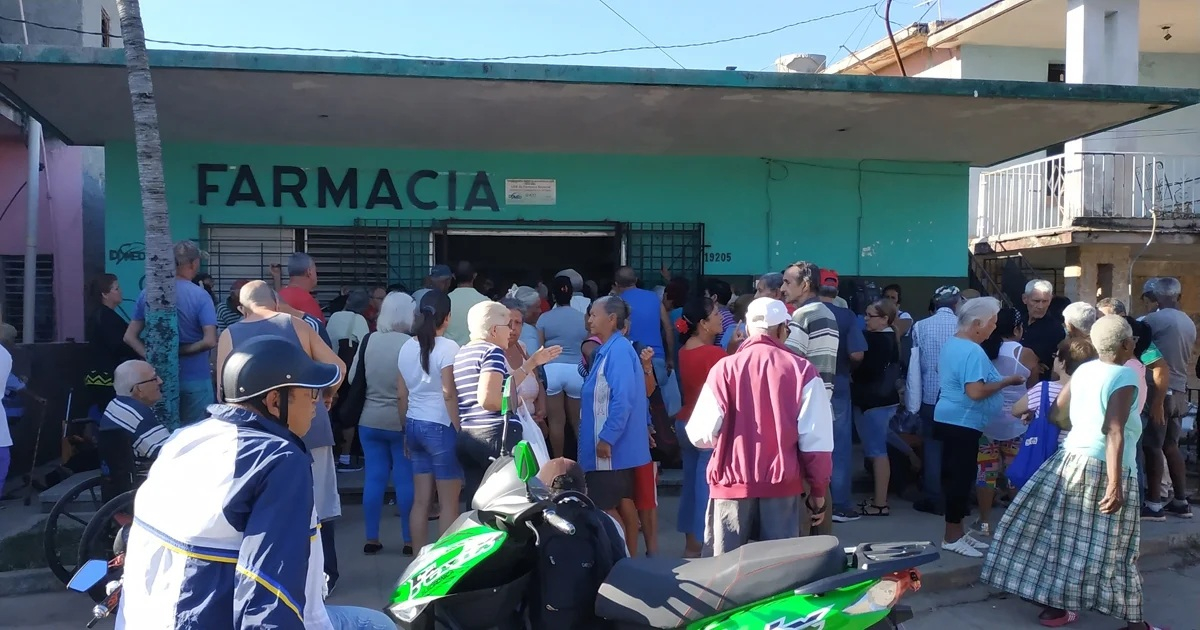The ongoing supply crisis in Cuba has compelled the government to ramp up medicine rationing as the country grapples with a significant shortage of essential drugs. This scarcity, which officials blame on external factors, has led to long lines across all provinces. Patients with chronic illnesses such as hypertension, diabetes, and asthma face grave challenges accessing their treatments, endangering their health.
In an effort to enhance distribution efficiency and ensure fairer access to the limited medications, a new sales method has been introduced in pharmacies in the province of Camagüey. According to the local newspaper Adelante, this system designates specific days for purchasing medicines based on the assigned medical consultories. The sales period ranges from six to seven days, contingent on the number of consultories served by each pharmacy. Once all consultories are covered, the sales cycle restarts in the order of arrival.
Upon receiving medicines in each distribution cycle, the pharmacy administrator will notify local authorities and medical personnel, ensuring the public adheres to the schedule, stated Maurilis Acosta Nápoles, head of the pharmaceutical services section of the General Directorate of Public Health in the province. The quantities available for sale to each patient depend on the received supplies and the regulations established for each type of medication.
This model encompasses all medications but particularly focuses on controlled substances that necessitate stricter management. "In cases of medical emergencies, individuals, regardless of their designated consultory, have the right to receive medication, provided it is available, whether at a main pharmacy, a special area pharmacy, or a community pharmacy," Acosta Nápoles emphasized.
Medicine shortages in Cuba have reached critical levels in recent years, severely impacting the population, especially those with chronic illnesses and the elderly. Official reports indicate that over 70% of essential medications are missing, accounting for more than 460 drugs from the basic list. This dire situation has forced many Cubans to turn to the black market, where medicine prices have skyrocketed. For instance, a bottle of amoxicillin can cost up to 300 pesos on the informal market.
Additionally, there have been reports of people sleeping in pharmacy doorways to secure a place in the long queues to obtain the few available medicines. Cuban authorities have acknowledged the severity of the shortage. In July 2024, the Minister of Public Health, José Ángel Portal Miranda, announced that the medicine scarcity would persist due to financial constraints and difficulties in acquiring raw materials.
This crisis not only affects patients needing regular treatments but has also heightened the illegal resale of medicines, further exacerbating the issue. In response, the Cuban government has implemented measures such as extending the tariff exemption for the importation of food, hygiene products, and medicines by travelers from abroad. However, these actions have proven insufficient in alleviating the shortage, and the population continues to face serious challenges accessing essential medications.
Understanding Cuba's Medicine Shortage
What factors are contributing to the medicine shortage in Cuba?
Cuban authorities attribute the medicine shortage to external factors, financial constraints, and difficulties in acquiring raw materials.
How are patients coping with the limited availability of medications?
Many patients are turning to the black market, where prices are significantly higher, and some even camp outside pharmacies to secure a spot in line.
What measures has the Cuban government taken to address the shortage?
The government has extended tariff exemptions for importing food, hygiene products, and medicines, but these measures have not fully resolved the issue.
